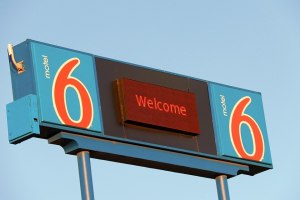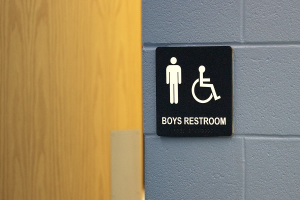Ancient Box Supposedly Containing the Remains of Jesus' Brother Vandalized by Israeli Officials
A disputed limestone box believed by some to contain the remains of James, the brother of Jesus Christ, has allegedly been vandalized by Israeli officials who had been analyzing it for forgery.
"It could be the earliest inscription of the word 'Jesus' ever found, but we may never know. In their fruitless zeal to prove that the inscription 'James, son of Joseph, brother of Jesus' was forged by Oded Golan or an Egyptian craftsman working under his direction, the Israel Antiquities Authority permitted a series of destructive tests that proved nothing and may have destroyed the chances of ever knowing the truth," wrote Jerusalem-based journalist Matthew Kalman in a blog.
The inscription on the 2000-year-old burial box was initially suspected by Israeli officials to be a forgery by Golan, a private collector, who said that he obtained the box along with an ancient tablet from Arab traders in East Jerusalem about a decade ago.
A three-judge panel of Israeli Supreme Court justices finally decided to return the item to the private collector after a decade-long legal battle, which had more than 100 hearings and 12,000 pages of documents, admitting that it was unable to find evidence that the inscription is a forgery.
And while the relic is now set to for public view for the first time since 2002, reddish stains have been discovered over the inscription, remnants of a silicon substance applied by the Israel Police Forensics Laboratory in their examination – which might make it impossible to ever know for sure the authenticity of the artifact.
"It's not in the same condition as before the trial. The inscription was defaced, contaminated. They poured red silicon into the inscription and they let it dry and when they took it out they took the patina. It's ruined," Golan said.
"I have to evaluate the damage, see if it can be restored and if there is the possibility of carrying out further tests on the inscription in the future that will allow us to show its authenticity. The government said the second half of the inscription was forged – the words 'brother of Jesus' – and that's where the major damage has been done."
One of the judges who presided over the case admitted that the process used to make a mold of the inscription left damage to the box.
"There is no dispute that the casting of the silicon by the forensics people changed the physical condition of the inscription of the ossuary," Judge Aharon Farkash said.
"We are dealing with a criminal case... we have to determine the accuracy of the evidence. In this situation, in light of the principles of the case law cited above regarding the failings of the investigation, and considering the entirety of the evidences for this charge, I believe that the casting of the silicon affected Golan's defense so he was deprived in such a way that it strengthens the reasonable doubt regarding his guilty charge," he added.
If authentic, the limestone box could offer insight into whether Jesus Christ did indeed have any earthly siblings. References to James as a brother of Jesus are found in the books of Matthew and Mark from the Bible, but the Roman Catholic Church disputes claims that Christ had brothers and sisters.





























